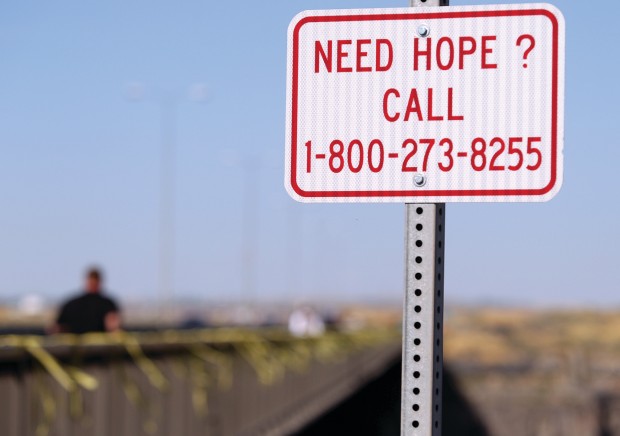Question
Gramps,
I have been wondering what happens to those who commit suicide and what about those who attempt suicide and fail? I’ve lost a couple friends to suicide and have had a few friends attempt suicide. I just wondered what is done to help them? I’ve gone onto the Church’s website but feel there’s more than just that. It’s more about the successful attempts if that makes sense
Melissa
Answer
Dear Melissa,
I’m so sorry to hear that you have lost friends to suicide. It is always hard to lose someone we care about to death, and suicide just seems to deepen that loss. You mentioned that you have been on the church’s website, while you were there did you see Elder Russel M. Ballard’s talk, Suicide: Some Things We Know and Some We Do Not? If not, that is a talk I would highly recommend to you.
In his talk he said that our leaders have given us counsel about suicide, but perhaps we have not understood it. He then shares a couple quotes about the seriousness of suicide and says, “Those statements on their own might seem to leave no room for hope. However, although they stress the seriousness of suicide, the statements do not mention the final destination of those who take their own lives.”
So that is the first thing we should know. We do not know the final destination of those who commit suicide. Elder Dallin H. Oaks gave a wonderful talk about judging. He was very clear on this point: “Since mortals cannot suppose that they will be acting as final judges at that future, sacred time, why did the Savior command that we not judge final judgments? I believe this commandment was given because we presume to make final judgments whenever we proclaim that any particular person is going to hell (or to heaven) for a particular act or as of a particular time. When we do this—and there is great temptation to do so—we hurt ourselves and the person we pretend to judge.” “Judge Not’ and Judging (italic added)
This may be puzzling to some. We are warned that suicide is serious, so how can we have hope? But Elder Ballard goes onto explain:
The late Elder Bruce R. McConkie, formerly of the Quorum of the Twelve, expressed what many Church leaders have taught: “Suicide consists in the voluntary and intentional taking of one’s own life, particularly where the person involved is accountable and has a sound mind. … Persons subject to great stresses may lose control of themselves and become mentally clouded to the point that they are no longer accountable for their acts. Such are not to be condemned for taking their own lives. It should also be remembered that judgment is the Lord’s; he knows the thoughts, intents, and abilities of men; and he in his infinite wisdom will make all things right in due course.” (Mormon Doctrine, Salt Lake City: Bookcraft, 1966, p. 771; some italics added.) “
There are a couple things here I would like to emphasize. First he said that Elder McConkie “expressed what many Church leaders have taught.” This is not just the opinion of Elder McConkie or Elder Ballard, but of many Church leaders. Second, that sometimes when people are in great pain they become mentally clouded. I have talked to several people when they were in this state, or heard their stories afterwords and I can tell you that is true. For example, one man shared how he had sat down with some medication and a beer planning to overdose. As he sat at the table, he looked at the beer and thought, “I can’t drink that. It’s against the Word of Wisdom.” So he took the full bottle of pills with a glass of water. It is clear he was not thinking rationally in that moment.
Part of the irrational thinking that is common when people are in this state is thinking that they will actually be doing their friends and family a favor. They often feel they are a burden and that it would be better if they were gone. I do not say this to increase the pain of the family and friends, but to ease it. It’s not that your loved one didn’t care about you; his or her thinking had just become clouded to the point that it seemed that suicide was the best case scenario for all.
Some people feel that suicide is selfish, but that idea comes from pain and lack of understanding. Fortunately, the Lord knows our hearts and will judge each individual. As Elder Ballard explains: “I feel that the Lord also recognizes differences in intent and circumstances: Was the person who took his life mentally ill? Was he or she so deeply depressed as to be unbalanced or otherwise emotionally disturbed? Was the suicide a tragic, pitiful call for help that went unheeded too long or progressed faster than the victim intended? Did he or she somehow not understand the seriousness of the act? Was he or she suffering from a chemical imbalance that led to despair and a loss of self-control?”
Reading this you may say, “But Gramps, I read that talk already. I want to know more.” I can’t tell you more than what our leaders already have. It is possible, however, that you can find more answers about your situation and your loved one, by petitioning the Lord in prayer. Often the comfort we seek can be found in no other way.
You also mentioned your friends who have attempted suicide. You can love them best by not judging them. If you know someone who is suicidal encourage them to get professional help.
If you think someone might be suicidal, ask them. Simply asking the question will not make a person suicidal. If they are suicidal, help them get help.
In both situations, be a friend, listen, love, pray. Try to avoid giving unsolicited advice (leave that to the professionals) just shower them with love and listen. Pain needs a witness so sometimes the best help you can give is to listen and be that witness.
If you need help dealing with your loss and your grief, there is a beautiful article about The Healing Power of Grief. This article quotes Elder Merrill J. Bateman: “Death’s sting is softened as Jesus bears the believers’ grief and comforts them through the Holy Spirit. Through Christ, broken hearts are mended and peace replaces anxiety and sorrow.”
You might also take a look at another Q&A that was previously published: What is the Lord’s and the Church’s View on Suicide?
National Suicide Prevention Hotline:1-800-273-8255 This line is not just for those attempting suicide, but also for friends and family.
Sincerely,
Gramps







